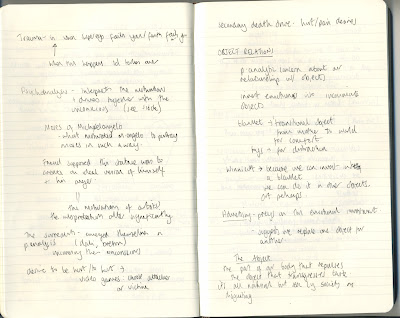
Tuesday 24 November 2009
A panoptic example
Visiting the cinema appears to become more panoptic with each visit. With the projector placed at the back of the room high up, surveillance is easily carried out on each visitor at the same time providing 'permanent visibility that assures the automatic functioning of power' (Foucalt in Thomas, 2000 p82). The positioning of the window behind visitors means that member's of the audience 'never know whether [they are] being looked at at any one moment' (Foucalt in Thomas, 2000 p82).
With the introduction of new equipment that can detect filming it means it is not only humans who are surveying but also technology. There are reminders of this power present throughout the visit. From warning displayed before the film, to members of staff, who act as 'representatives of power'(Foucalt in Thomas, 2000 p77), coming into the screen in time intervals to observe audiences.
The constant reminders to audiences that they are being surveyed from an 'omnipresent and omniscient power' (Foucalt in Thomas, 2000 p78) causes self regulation and the rules of the cinema will be followed automatically.
References:
'Panopticism' in Thomas, J. (2000) 'Reading Images', NY, Palgrave McMillan
Subscribe to:
Posts (Atom)














